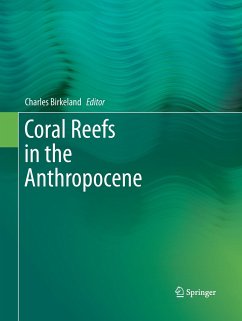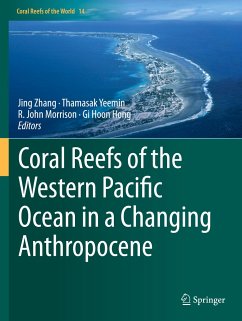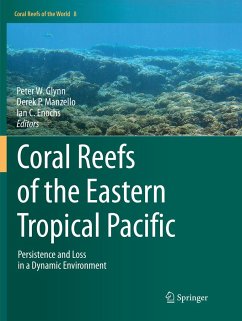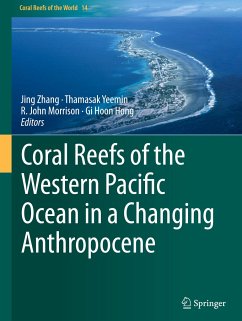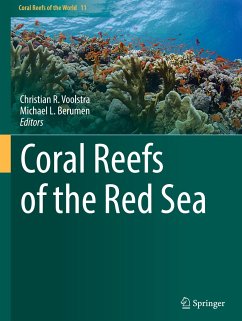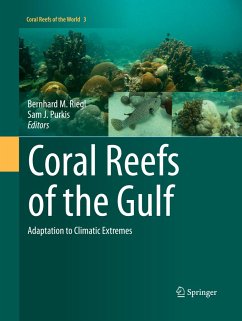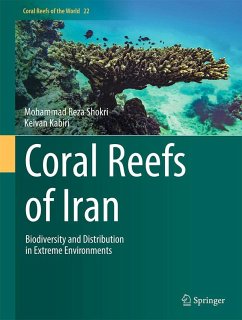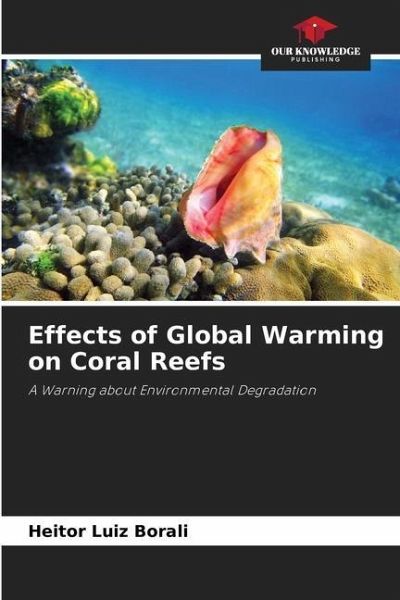
Effects of Global Warming on Coral Reefs
A Warning about Environmental Degradation
Versandkostenfrei!
Versandfertig in 6-10 Tagen
27,99 €
inkl. MwSt.

PAYBACK Punkte
14 °P sammeln!
Actions resulting from high emissions of greenhouse gases (GHG), mainly carbon dioxide ( ) through industries, cars, burning fossil fuels, among others, have intensified global warming and generated a series of consequences, specifically in the oceans, affecting all marine fauna and flora. Coral Reefs are considered to be the most diverse marine ecosystems due to the abundance and variety of species. Of great social, economic and cultural importance, they are currently being damaged by high rates of deforestation. One of the most obvious causes of the influence of global warming on these ecosy...
Actions resulting from high emissions of greenhouse gases (GHG), mainly carbon dioxide ( ) through industries, cars, burning fossil fuels, among others, have intensified global warming and generated a series of consequences, specifically in the oceans, affecting all marine fauna and flora. Coral Reefs are considered to be the most diverse marine ecosystems due to the abundance and variety of species. Of great social, economic and cultural importance, they are currently being damaged by high rates of deforestation. One of the most obvious causes of the influence of global warming on these ecosystems is the bleaching of corals, as they are very sensitive to climatic variations and easily stressed. However, it is not known to what extent these changes could be harmful to this ecosystem and to the planet as a whole. This study therefore seeks to raise awareness of the means and goals for preserving these organisms.





